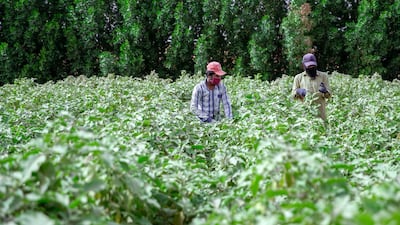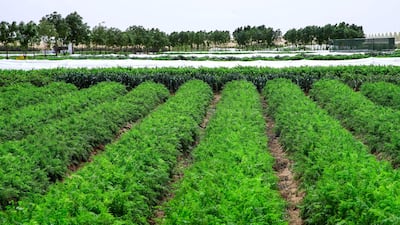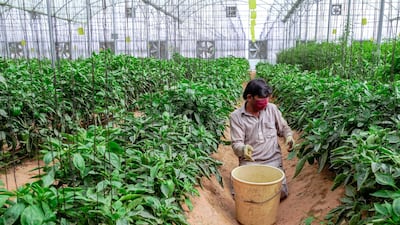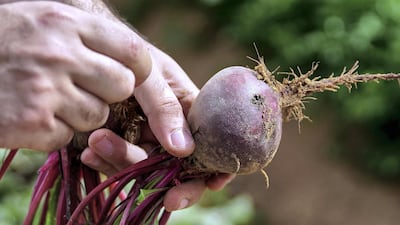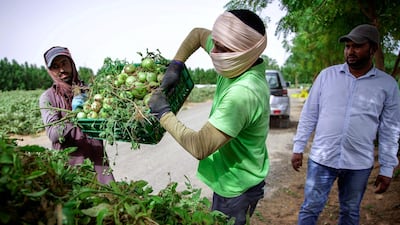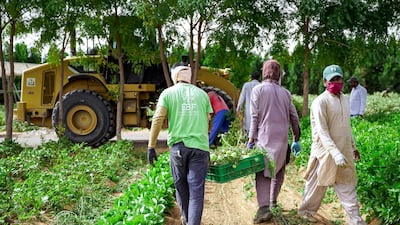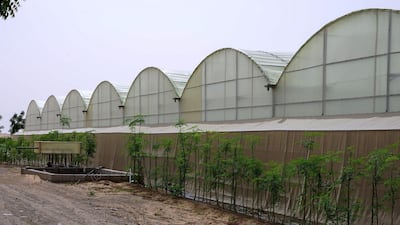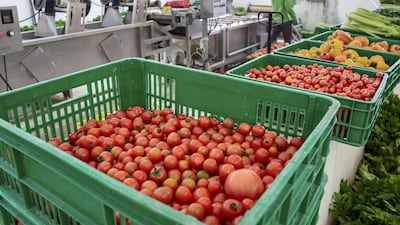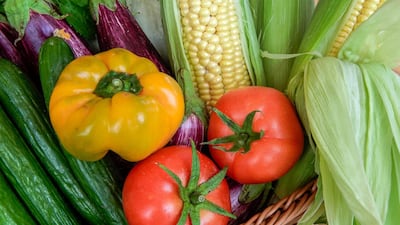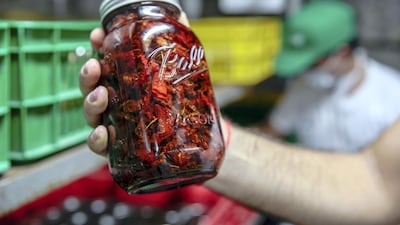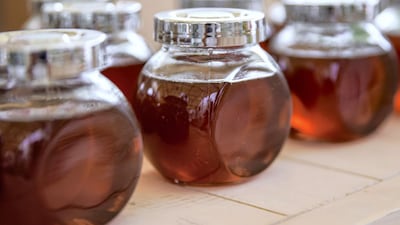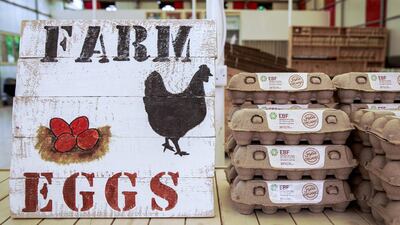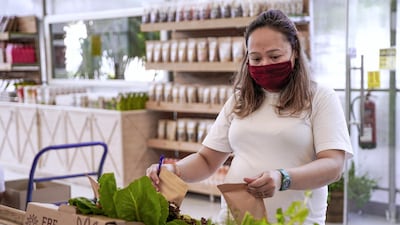Rice is a demanding crop to grow. It typically requires specific conditions and flooded paddies but a group of scientists in the UAE are learning to turn the dry deserts of Sharjah into land capable of nurturing this global staple.
It is hoped the joint project between UAE University scientists and South Korean experts could lead the way for similar initiatives that will reduce the country's reliance on imported food.
The coronavirus pandemic has forced some rice growing nations to restrict the amount of produce they export.
To counter the growing food security threat, local scientists are using the latest technology to grow 763 kilograms of rice in a 1,000 square metre plot of desert.
Dr Thani Al Zeyoudi, Minister of Climate Change and Environment, said the impressive results could change agriculture across the arid region.
“The innovative venture is the first of its kind in the Middle East,” he said.
“If successful on a large scale, this groundbreaking project has the potential to shape the future of agriculture as it can be replicated.
"Rice is one of the most important foods that is consumed on a daily basis in this area.
“We are focusing on driving innovation and exploring agritech in growing the crops that are in high demand.”

After extensive testing, experts selected Asemi (Japonica) and FL478 (Indica) rice varieties to grow because of their ability to tolerate heat, salinity and poor soil conditions.
Seeds were sowed in November last year and harvested in three stages between May 5 and May 30.
The crops had a growing cycle of 180 days and were watered via an underground drip irrigation system to reduce cost and wastage.
The harvested rice will only be used commercially once tested to ensure compliance with standard specifications.
Despite the UAE being in the top 10 global rice importers and relying on shipping and air freight for 90 per cent of its food, serious pandemic related disruption has so far been avoided.

The impressive rice growing results at the Ministry of Climate Change and Environment’s Al Dhaid research centre have added hope for other agricultural innovations.
“We seek to make the most of our resources and find the crops and methods that are suitable for our desert climate,” said Dr Al Zeyoudi.
“We have to target the crops that are in high demand locally. This is one of the things we’ve noticed during the pandemic.
“We are exploring and adopting more innovative solutions in every phase.”
The results will provide a baseline for other research programmes and undertakings related to food and agriculture.
The rice project was completed in partnership with the Rural Development Administration (RDA) of the Republic of Korea.
Other initiatives in the pipeline to encourage more self sufficiency include smart greenhouse projects, vertical farms that grow crops inside climate-controlled facilities and the control of date palm pests.
In March, at the height of the pandemic in Asia, Vietnam announced a ban on rice exports to ensure the country had sufficient foods to cope.
Quotas on white rice exports from the country have since increased to 500,000 tonnes a month.
It was a warning to nations reliant on imported goods to become more self-sufficient in the post-pandemic world.
South Korea will continue to work with the UAE on developing further water-saving technologies to maximise crop growth.
“Korea has long experience and cutting-edge technologies in the field of agriculture and food security, which it is ready to share with the UAE,” said Kwon Yongwoo, Republic of Korea ambassador to the UAE.
"The two countries have great potential to become ideal partners in agriculture and food security, just as they are in many other areas.”

